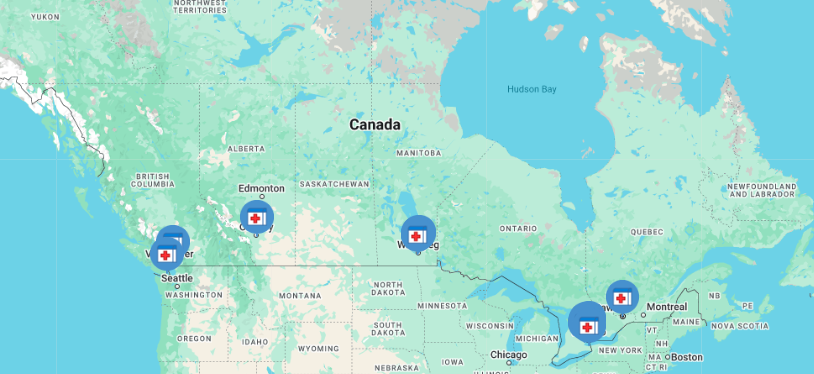GUIDED ANXIETY MANAGEMENT PATHWAY
This 6-week one-on-one worry and anxiety management program is designed to help you understand the roots of your anxiety, learn practical coping strategies, and develop long-term tools for emotional resilience. The program combines self-reflection, skill-building, and personalized planning to create lasting, positive change in how anxiety is handled day to day.
We also offer self-assessment and a library of anxiety-management resources.
IMPROVE YOUR RESILIENCE
LEARN LIFE-LONG STRATEGIES
REDUCE ANXIETY SYMPTOMS
GET CUSTOMIZED SUPPORT
About the Program
Enhanced emotional resilience, reduced anxiety symptoms, acquisition of lifelong coping strategies, and improved overall well-being.

AWARENESS & ASSESSMENT
Begin by identifying key anxiety triggers and understanding how anxiety manifests in your thoughts, body, and behaviors. The therapist will guide you through self-reflection exercises, daily anxiety logs, and possibly standardized assessments like the GAD-7 to uncover patterns and triggers. This phase focuses on building awareness and setting specific, realistic goals for change.

COPING SKILLS & EMOTIONAL REGULATION
In this phase, you’ll learn and practice evidence-based coping strategies such as cognitive restructuring, mindfulness, and relaxation techniques. The therapist will help you identify unhelpful thought patterns and introduce techniques to manage emotional responses more effectively. Regular check-ins will reinforce the use of these tools in real-life situations.

INTEGRATION & MAINTENANCE
The final phase focuses on integrating new skills into daily life and preparing for future anxiety-inducing situations. You’ll develop a personalized anxiety management plan, including ongoing practices and strategies. Together with your therapist, you’ll troubleshoot remaining challenges and build confidence in sustaining progress independently.

AWARENESS & ASSESSMENT
Begin by identifying key anxiety triggers and understanding how anxiety manifests in your thoughts, body, and behaviors. The therapist will guide you through self-reflection exercises, daily anxiety logs, and possibly standardized assessments like the GAD-7 to uncover patterns and triggers. This phase focuses on building awareness and setting specific, realistic goals for change.

COPING SKILLS & EMOTIONAL REGULATION
In this phase, you’ll learn and practice evidence-based coping strategies such as cognitive restructuring, mindfulness, and relaxation techniques. The therapist will help you identify unhelpful thought patterns and introduce techniques to manage emotional responses more effectively. Regular check-ins will reinforce the use of these tools in real-life situations.

INTEGRATION & MAINTENANCE
The final phase focuses on integrating new skills into daily life and preparing for future anxiety-inducing situations. You’ll develop a personalized anxiety management plan, including ongoing practices and strategies. Together with your therapist, you’ll troubleshoot remaining challenges and build confidence in sustaining progress independently.
Meet Your Therapist
Managing anxiety is vital for both mental and physical health. Uncontrolled anxiety can lead to various symptoms, including excessive worry, irritability, and difficulty concentrating, which can interfere with daily life. Effective anxiety management improves overall well-being, enhances emotional resilience, and fosters healthier relationships. Techniques such as mindfulness, exercise, therapy, and social support can significantly reduce anxiety levels. Prioritizing anxiety management helps maintain a balanced life and promotes a more positive outlook on challenges.
– Marina

Marina Fanous, CCC
Not sure where to start?
Try a self-assessment.
Our self-assessment is based on the General Anxiety Disorder Scale (GAD-7), a widely used and accepted tool for assessing individual experience of anxiety and its symptoms. Use of the assessment is anonymous. Our online assessment includes guidance regarding scoring as well as suggested follow-up based on the outcome of the assessment.
Always keep in mind that there are a variety of factors that can influence the reliability of the assessment, that your individual scores may vary over time, and, above all, that it is an assessment rather than a diagnostic tool. As such, this and similar self-guided assessments are not substitutes for professional guidance and should never be considered definitive.
ANXIETY MANAGEMENT RESOURCES
The following list of resources is provided solely for educational purposes. WELL Mental Health & Wellness is not affiliated with any third-party content providers or sources.
Commonly Asked Questions
What are the common reasons people suffer from anxiety and excess worry?
Common reasons for anxiety include stress, traumatic experiences, genetics, poor lifestyle choices, and excessive concern over future events, leading to persistent worry and emotional discomfort.
Can I overcome stress on my own?
Yes, many people can overcome anxiety on their own through self-help strategies like mindfulness, exercise, healthy routines, and journaling. However, professional support can enhance progress and understanding.
What other issues are commonly associated with anxiety and worry?
Anxiety and worry are often associated with depression, insomnia, fatigue, irritability, digestive issues, and social withdrawal. These conditions can exacerbate anxiety symptoms, creating a challenging cycle.
Canada's largest network of therapists.
Our diverse network of qualified mental health professionals can support you with many mental health concerns. We believe that excellent client-therapist relationships are crucial for effective support, which is why you can choose your own therapist, and change therapists, at any time.

Supporting you, wherever you are.
As a part of the WELL Health Medical Centre team, we offer in-person therapy at select WELL Clinics. The majority of WELL Mental Health and Wellness services are covered by private insurance and corporate benefits plans.
Available at select WELL Clinics in British Columbia, Alberta, Ontario, and Manitoba.



